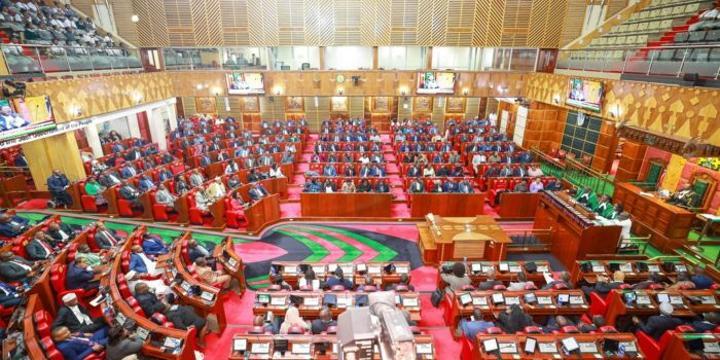Africa-Press – Kenya. Members of Parliament have raised concerns over the plan to privatise the Kenya Pipeline Company (KPC), a move that could earn the Kenyan government Ksh120 billion.
During a meeting with Treasury Cabinet Secretary John Mbadi, the lawmakers poked holes in the move spearheaded by President William Ruto, urging the government to prioritise curbing the wastage and mismanagement of public funds instead.
On Tuesday, July 29, the Cabinet approved the move to list Kenya Pipeline on the Nairobi Securities Exchange (NSE), after Ruto had proposed that listing the profitable institution would attract both domestic and international investment.
In the move, some of the government shares in KPC would be sold to private investors, and the listing of the company on the NSE would enable Kenyans to buy shares and become part-owners of the lucrative company.
However, MPs argued that the government could avoid selling off strategic state corporations by addressing inefficiencies and financial leakages within ministries, departments, and agencies.
They proposed enhanced fiscal discipline as a more sustainable approach, instead of rushing to dispose of a self-sustaining and profit-making company like KPC.
They cited the failed listings of companies such as Mumias Sugar and Uchumi Supermarkets in the move to privatise State-owned companies.
In response, CS Mbadi, while defending the privatisation of KPC as a budget-raising measure, noted that it would be crucial to support budget implementation and ensure that key development projects are not stalled due to a shortage of funds.
“Raising taxes at this point is not an option,” the CS said, emphasising that privatisation would provide the much-needed fiscal space without overburdening taxpayers.
At the same time, Mbadi said that the Treasury had already put in place several reforms to curb wastage.
These included the adoption of e-procurement systems and the introduction of robust accountability mechanisms to ensure proper utilisation of public resources.
“These measures will go a long way in reducing unnecessary expenditure across government operations,” Mbadi stated.
The proposal to privatise KPC has already been formally tabled in Parliament and committed to the joint committee on Energy and that of Public Debt and Privatisation for consideration.
The legislators are expected to weigh the fiscal benefits as outlined by the Treasury against the strategic value of retaining government control over the company.
For More News And Analysis About Kenya Follow Africa-Press






